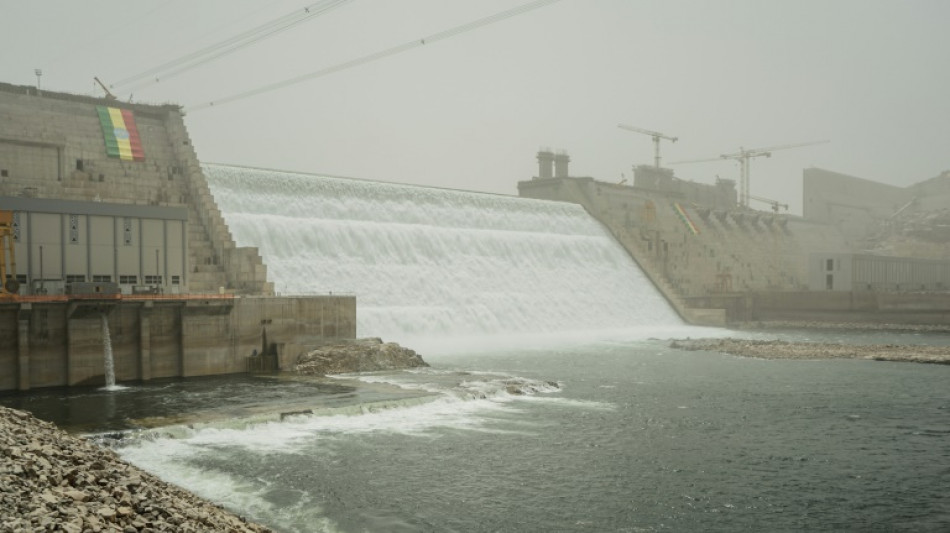
-
 Scotland captain Tuipulotu grateful for Wales boss Tandy's influence
Scotland captain Tuipulotu grateful for Wales boss Tandy's influence
-
Zelensky says no 'family day' in rare personal interview to AFP

-
 Zelensky tells AFP that Ukraine is not losing the war
Zelensky tells AFP that Ukraine is not losing the war
-
Sweden to play Switzerland in Olympic women's curling final

-
 Counting the cost: Minnesota reels after anti-migrant 'occupation'
Counting the cost: Minnesota reels after anti-migrant 'occupation'
-
UK police probe Andrew's protection as royals reel from ex-prince's arrest

-
 Doris says Ireland must pile pressure on England rising star Pollock
Doris says Ireland must pile pressure on England rising star Pollock
-
US military assets in the Middle East

-
 Neymar hints at possible retirement after World Cup
Neymar hints at possible retirement after World Cup
-
Stocks rise after court ruling against US tariffs

-
 Australia end dismal T20 World Cup by thrashing Oman
Australia end dismal T20 World Cup by thrashing Oman
-
Olympics chief says Milan-Cortina has set new path for Games

-
 Russian SVR spy agency took over Wagner 'influence' ops in Africa: report
Russian SVR spy agency took over Wagner 'influence' ops in Africa: report
-
Pegula fights back to sink Anisimova and reach Dubai final

-
 Trump administration denounces 'terrorism' in France after activist's killing
Trump administration denounces 'terrorism' in France after activist's killing
-
Colombia's Medellin builds mega-prison inspired by El Salvador's CECOT

-
 German broadcaster recalls correspondent over AI-generated images
German broadcaster recalls correspondent over AI-generated images
-
US Supreme Court strikes down swath of Trump global tariffs

-
 England's Itoje says managing 'emotional turmoil' key to 100 cap landmark
England's Itoje says managing 'emotional turmoil' key to 100 cap landmark
-
Trump says weighing strike on Iran as Tehran says draft deal coming soon

-
 Tudor is '100 percent' certain of saving Spurs from relegation
Tudor is '100 percent' certain of saving Spurs from relegation
-
Azam dropped for scoring too slowly, says Pakistan coach Hesson

-
 Stocks volatile after soft US growth data, court ruling against tariffs
Stocks volatile after soft US growth data, court ruling against tariffs
-
Italy bring back Capuozzo for France Six Nations trip

-
 From Malinin's collapse to Liu's triumph: Top Olympic figure skating moments
From Malinin's collapse to Liu's triumph: Top Olympic figure skating moments
-
Arteta urges Arsenal to 'write own destiny' after title wobble

-
 Ukraine Paralympics team to boycott opening ceremony over Russian flag decision
Ukraine Paralympics team to boycott opening ceremony over Russian flag decision
-
Wales captain Lake wants fans to bring 'noise' against Scotland

-
 Skier Vonn's Italian hospital a hotbed of men, sister says
Skier Vonn's Italian hospital a hotbed of men, sister says
-
India target S.Africa top order, Abhishek to come good: bowling coach

-
 Carrick praises Man Utd 'diversity' after Ratcliffe's immigrant rant
Carrick praises Man Utd 'diversity' after Ratcliffe's immigrant rant
-
I never thought it would be hit, says 'Scream' creator 30 years later

-
 AI summit statement delayed to 'maximise' signatories: India
AI summit statement delayed to 'maximise' signatories: India
-
Barcelona's Sagrada Familia basilica hits peak height

-
 Milan sprints to second straight UAE stage win as Tiberi keeps lead
Milan sprints to second straight UAE stage win as Tiberi keeps lead
-
US GDP growth misses expectations as Trump blames shutdown

-
 Benfica investigate video of fans' monkey gestures
Benfica investigate video of fans' monkey gestures
-
French minister pledges tight security at rally for killed activist

-
 Guardiola 'couldn't care less' about Arsenal stumble in title race
Guardiola 'couldn't care less' about Arsenal stumble in title race
-
UK police search property as royals reel from Andrew's arrest

-
 Germany's Merz to visit China next week
Germany's Merz to visit China next week
-
Kompany says Mourinho made 'huge mistake' in Vinicius racism row

-
 X appeals EU's 120-mn-euro fine over digital content violations
X appeals EU's 120-mn-euro fine over digital content violations
-
Galthie recalls hulking locks Flament, Meafou for Italy

-
 Turkey, Saudi sign major solar power deal
Turkey, Saudi sign major solar power deal
-
US Olympic freeskier Hess embraces 'loser' tag after Trump blast

-
 European stocks rebound, oil prices ease after US-Iran volatility
European stocks rebound, oil prices ease after US-Iran volatility
-
'Alpha male' AI world shuts out women: computing prof Hall

-
 New Zealand freestyle skier Ives in hard Olympic crash
New Zealand freestyle skier Ives in hard Olympic crash
-
New Zealand must adapt quickly to Sri Lanka wickets: Chapman


Trapped sediment in dams 'endangers' water supplies: UN
Thousands of the world's large dams are so clogged with sediment that they risk losing more than a quarter of their storage capacity by 2050, UN researchers said Wednesday, warning of the threat to water security.
A new study from the UN University's Institute for Water, Environment and Health found that, by mid-century, dams and reservoirs will lose about 1.65 trillion cubic metres of water storage capacity to sediment.
The figure is close to the combined annual water use of India, China, Indonesia, France and Canada.
That is important, the researchers say, because these big dams are a key source of hydroelectricity, flood control, irrigation and drinking water throughout the world.
"Global water storage is going to diminish -- it is diminishing now -- and that needs to be seriously taken into account," the study's co-author and Institute director Vladimir Smakhtin told AFP.
Researchers looked at nearly 50,000 large dams in 150 countries, and found that they have already lost about 16 percent of water storage capacity.
They estimated that if build-up rates continue at the same pace, that will increase to about 26 percent by mid-century.
Rivers naturally wash sediment downstream to wetlands and coasts, but dams disrupt this flow and over time the build-up of these muddy deposits gradually reduces the space for water.
Smakhtin said this "endangers the sustainability of future water supplies for many" as well as posing risks to irrigation and power generation.
- Part of a larger issue -
Accumulation of sediment can also cause flooding upstream and impact wildlife habitats and coastal populations downstream.
Sedimentation is a part of a larger issue: by 2050, tens of thousands of large dams will be near or past their intended lifespan.
Most of the world's 60,000 big dams -- constructed between 1930 and 1970 -- were designed to last 50 to 100 years, after which they risk failure, affecting more than half the global population who will live downstream.
Large dams and reservoirs are defined as higher than 15 metres (49 feet), or at least five metres high while holding back no less than three million cubic metres of water.
Global warming compounds the risk in ways that have yet to be fully measured.
"Climate change extremes like floods and droughts will increase, and higher intensity showers are more erosive," Smakhtin said.
This not only increases the risk of reservoirs overflowing but also accelerates the build-up of sediment, which affects dam safety, reduces water storage capacity and lowers energy production in hydroelectric dams.
- Alternatives -
To address looming challenges of ageing dams and reservoir sedimentation, the study authors list several measures.
Bypass, or sediment diversion, can divert water flow downstream through a separate river channel.
Another strategy is the removal, or "decommissioning", of a dam to re-establish the natural flow of sediment in a river.
But addressing water storage issues is especially complex because there is no one-size-fits-all solution, Smakhtin said.
"The loss of water storage is inevitable for different reasons," Smakhtin said. "So the question we should be asking is what are the alternatives?"
A March 22-24 UN 2023 Water Conference in New York will provide the possibility for countries to voice concerns and make commitments for the future of water management, he said.
D.Sawyer--AMWN


